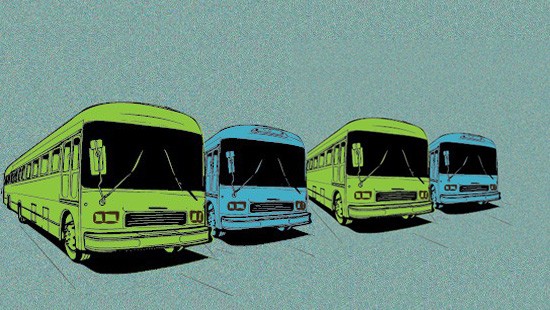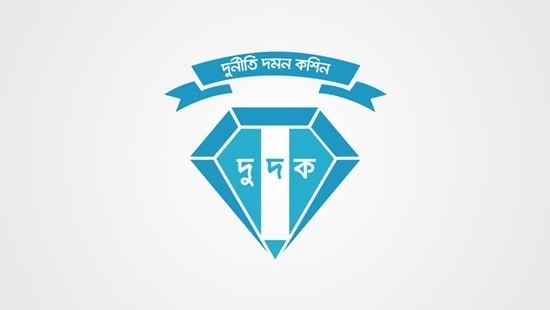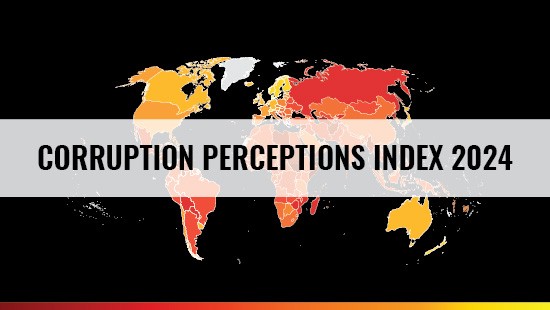Glimpses from the Press, December, 1996
Other than the daily coverage of news item regarding corruption cases against individuals the printed media regularly carries items on the causes and effects of corruption. Building awareness through the media is an important element in the fight against corruption. The debilitating effect of corruption is well known but we are not always fully aware of the 'costs' of it on the economy in the form of lost revenue to the exchequer. The Finance Minister of Bangladesh, Mr. Shah A.M.S. Kibria, recently wrote:
"Even the major aid agencies have joined the fray, recognising that corruption not only results in distortions that interfere with market forces, but that funding for development is being adversely affected by perception in the developed countries that taxpayers' money is not being spent well. The new president of the World Bank Mr. James D. Wolfensohn made some refreshingly candid remarks on the subject of corruption at the recent World Bank-IMF Board of Governors' meeting in Washington. He did not mince his words when he said, 'We need to deal with the cancer of corruption. In country after country, it is the people who are demanding action on this issue. They know that corruption diverts resources from the poor to the rich, increases the cost of running business, distorts public expenditures and deters foreign investors. They also know that it erodes the constituency for aid programmes and humanitarian relief. And we all know that it is a barrier to sound and equitable development....' " (Of Accountability, Transparency and the Fight Against Corruption, The Daily Star, Friday, 1 November, 1996)
On 21 December, 1996 two Bangla dailies carried items highlighting different aspects of corruption. The Daily Janakantha under the headline Worldwide movement against corruption - World Bank's policy, and the lack of success in Bangladesh cited the roundtable conference in which one of the former advisers of the Caretaker Government, Mr. Jamilur Reza Chowdhury, stated that '15 crore Taka is disappearing from the Capital city's gas and electricity system on average per month. A large portion of this amount is going into the pockets of the trade unions as political funds. He further raised the question that if 15 crore Taka can disappear from just the two sectors than what will be the total figure in terms of system's loss for the whole of the national economy ? Nobody will be able to give that figure but this must be considered as a major obstacle on the path of progress.' The article, among other things, stated the activities of Transparency International and referred to the World Bank's initiative in the form of voluntary guidelines to combat corruption.
The Daily Ittefaq in its editorial (Saturday, 21 December, 1996) under the heading Subject Matter: Bribery cited the recent deliberation at the General Assembly of the United Nations. The General Assembly has urged that bribery should be considered as a punishable act. The motion was tabled by the United States and some Latin American states and was supported by Russia, Pakistan, South Africa and the Philippines. The 185 member states of the General Assembly have been urged to take steps in order to refrain and remove corruption and bribery from international economic transactions. The General Assembly proposal has included in the definition of bribery any offer, undertaking of money or gifts or any advantage to be bestowed on others in order to conclude any contract. Any tax deduction claimed by governmental or non-government organisation for monies spent on bribery has to be abolished, according to the proposal. The editorial ended by stating that corruption has entered every layer of our society. The giving and taking of bribes is not considered reprehensible anymore in our society. Bribery is only encouraging the hand of corruption by usurping the rights of individuals.
In Pakistan News (1 December,1996) under the heading Corruption makes countries poor posed the questions "Why is it that the five most corrupt countries are also the poorest ? Could it be that corruption itself has brought them to where they are today ?" Reference was being made to the 1996 TI Corruption Perception Index of the most corrupt countries. The Index, based on 10 international surveys of business people, reflects their impressions and perceptions of more than 50 countries. Research on the Index has been led by Dr. Johann Graf Lambsdorff and a research team of Goettingen University. Dr. Peter Eigen of TI has commented that "the index does not deal in certainties and facts. It does not state 'These are the most corrupt countries.' And, while we are expanding the coverage, there are still more than 100 countries in the world that are not included on the Index."
Most Corrupt Countries and per capita income
1. Nigeria $310
2. Pakistan $440
3. Kenya $270
4. Bangladesh $220
5. China $380
The article in Pakistan News concluded by stating that "The choice is entirely our own. Remain corrupt and poor, or opt for the other route. If for nothing else, just for a change."
The India Today (15 December, 1996) quoted the Convenor of the Movement for Restoration of Good Government, New Delhi, in its Letters to the Editor:
"The malaise of corruption is eating into the fabric of our polity (Robbing the Poor, November 15, 1996). The erosion of our democratic institutions require immediate action. For, when an ailment has been diagnosed as cancer, we cannot go in for half-measures. And the cancer of corruption has to be eradicated before it takes a virulent form. Now, we have to anticipate events and take suitable measures before things go wrong. Let us take the example of the post of the chief election commissioner falling vacant shortly. We should ensure that the new election commissioner is a man who commands universal respect. We should let everyone know beforehand that the issue is too vital for the country to allow the wrong person to be selected. A clear message has to be sent to the Government that we will not let it get away with a decision which could blatantly undermine the sanctity of democracy in the country."
Earlier in 1996 in the Bangla daily, Ajker Kagoj (Bangladesh's most corrupt are the Government Employees, 25 September, 1996) reference was made to Transparency International's press release in which the government employees were identified as the most serious offenders and foremost amongst them are the police. One of the reason for this corruption is poor pay, for example, a police constable can only survive for seven days on the monthly salary that he receives and a high ranking civil servant, a Secretary, can only live for 3 days given some of their standard of life-style. Many of these high ranking civil servants have their own houses and some are in the most expensive areas of the Capital city. But these houses are not in their own names but in their parents' or spouse's names. That many of these civil servants are engaged as advisers or consultants for foreign organisations even though these extra assignments are not allowed according to the service rules.
The veteran journalist Kuldip Nayar writing in The Daily Star (Corruption Astrings Subcontinent, 3 January, 1997) gave a litany of corruption that the politicians of South Asia indulged in. "Had I been asked to select [the] topic of the year for the subcontinent, I would have chosen corruption....It is anybody's guess but the figure may be around Rs. 40,000 crore in the three countries. Most of the money is parked abroad. And if ever the full story of how it was made comes out, it will show that no government deal or contract was without the kickbacks which ministers, officials and a few others pocketed without any qualm of conscience....Still, a new year brings new hopes....there is a feeling of change, of a new vista. Troubles may not have lessened but the pile suddenly seems lighter than before. The problem of corruption would look more manageable if the peoples in the subcontinent were to look down upon the dishonest. Not long ago, it was not fashionable to mix with those who did not have clean reputation. Why not revive a social boycott of corrupt politicians, officials, businessmen and even journalists ?" TI-B would readily express solidarity with such a sentiment and in that spirit we too start the new year.
The above sample of articles is not supposed to be an exhaustive survey. There must have many more articles on bribery and corruption in newspapers and magazines in the recent past. TI-B will appreciate cuttings from readers for purposes of future reference and use. TI-B would also urge readers to write to us on specific examples of corruption for our information but such communication should not infringe any relationship of confidentiality.
The Ehtesah (Accountability) Ordinance of Pakistan
The Ordinance No. CXI of 1996, known as the Ehtesah (Accountability) Ordinance, and with the longer title of an 'Ordinance to eradicate corruption and corrupt practices from the public offices' was published on Monday, 18th November 1996. It is a comprehensive attempt to deal with corruption and corrupt practices of the holders of public offices since the date of 31st December 1985.
Section 2 and 3 deal the definitions including that of corruption and corrupt practices. The latter has been defined as
"(a) if he accepts or obtains from any person any gratification, other than legal remuneration, as a motive or reward such as is specified in section 161 of the Pakistan Penal Code (Act XLV of 1980), or for doing or forbearing to do any official act or for showing or forbearing to show, in the exercise of his official functions, favours or disfavour to any person, or for rendering or attempting to render any service or disservice to any person;
(b) if he accepts or obtains any valuable thing without consideration or far a consideration which he knows to be inadequate from any person whom he knows to have been, or to be likely to be, concerned in any proceeding or business transacted or about to be transacted by him, or having any consideration with his official functions, or from any person whom he knows to be interested in or related to the person so concerned; or
(c) if he dishonestly or fraudulently misappropriates or otherwise converts for his own use or for the use of any other person any property entrusted to him or under his control as holder of public officer or wilfully allow any other person so to do; or
(d) if he, by corrupt, dishonest, improper or illegal means obtains or seeks for himself or for any other person any property, valuable thing, pecuniary advantage or undue favour; or
(e) if he or any of his dependents or benamidars are in possession of any moveable or immoveable property or pecuniary resources, disproportionate to his known sources of income which he cannot reasonably account for; or
(f) if he commits or causes rigging of election.
The punishment for such aforementioned corrupt acts, which are also non-bailable, ranges from seven years' imprisonment to fine to the forfeiture of the moveable or immoveable property, including bank deposits, either in his name or in the name of his dependent or benamidar. Such punishment would apply equally to persons giving illegal gratification, or abetting, assisting or aiding a holder of public office. The amount of fine, according to the Ordinance, shall not be less than the gain derived by the accused. The court will also have the power to freeze the property of the accused "....if there appear reasonable grounds for believing that the accused has committed such offence....."







